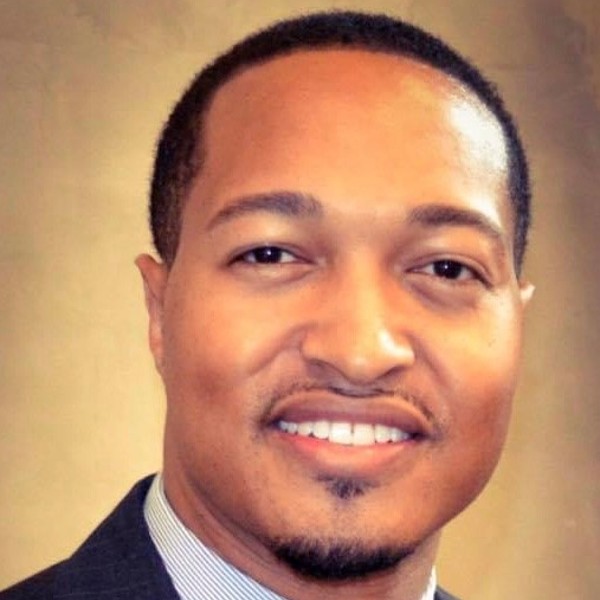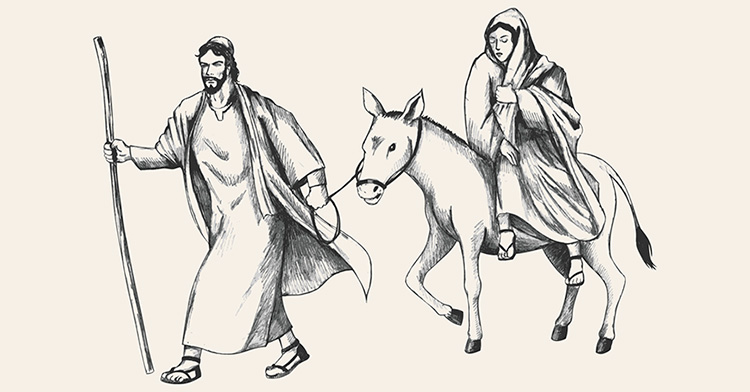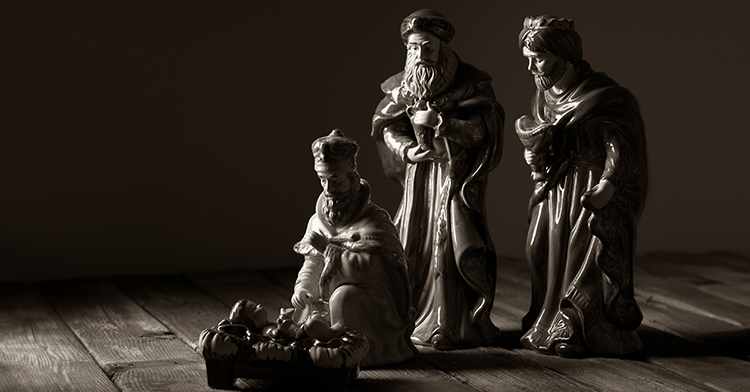Advent narrates one of God’s greatest divine disruptions, radically changing the lives of Mary and Joseph in order to redeem humanity. Each year, we are reminded of how God interrupts the holy couple’s betrothal without relegating them to passive roles in Christianity’s story.
Every divine disruption presents people with an opportunity to respond. Will they embrace the plan of God and be faithful to God’s guidance, or will they reject God’s plan and seek to hold on to the status quo? Mary and Joseph ultimately show themselves to be willing participants in God’s plan, their tender, private relationship transformed to provide for our salvation.
Often, and appropriately, Mary is the focus of our attention during Advent — a teenager facing life-changing news in a society primed to reject her. Rather than buckle, she proclaims her faithfulness to God; Mary does not come undone. Joseph is his own mystery, however, and worthy of exploring in the context of the times.
Joseph may have heard the details of the pregnancy from Mary, but sometimes God’s disruptions are hard to believe. While the betrothed carpenter processed the news of Mary’s pregnancy, Matthew writes, “Joseph, being a righteous man and unwilling to expose her to public disgrace, planned to divorce her quietly” (Matthew 1:19 NRSVUE).
Joseph’s initial response to God’s divine disruption was not faithful obedience to God; it was the protection of Mary’s (as well as his own) reputation. Given the custom at that time, there were two steps for a couple in the marital process. The first was the betrothal and signing of the marriage contract, which would have typically included a discussion of the price of the marriage, and the second was the marriage feast. At that point, the groom would take his wife home. This disruption takes place between the two events — the time between a promise being made and a promise being manifested.
When Joseph heard that Mary was pregnant, he would reasonably have suspected that she had committed adultery during the marital process, which was one of the grounds for divorce in Jewish law. But God hadn’t finished disrupting!
Just when Joseph had resolved to divorce Mary, an angel of the Lord appeared to him in a dream and declared that this unanticipated reality was in fact a divine moment meant to transform the world. What was Joseph to do?
As a husband and father, I naturally gravitate to the story of Joseph. I can imagine the preparations he would have been making between the marriage contract and the marriage feast. He was committing to changing his life and making room for Mary. While there aren’t many details provided about Joseph’s life, we know that he was preparing to provide for Mary and adhere to his moral and civic obligations of building a family that contributed to the well-being of society.
Then God came into the picture and shattered Joseph’s expectations.
Shattered expectations do drive you to the place where you want to start over. Joseph wanted to do so without harming Mary’s reputation, but any decision to divorce Mary in a patriarchal society would have been catastrophic for her, even as societal norms would have justified Joseph’s decision.
Joseph and Mary’s story leaves us with a challenge. What are we to do when our expectations are shattered after a promise is made but before the promise is manifested? Although society does make room for the cancellation of promissory notes, there is something different when God is one of the parties involved in the promise making.
When doing due diligence on God, we see that God has a record of consistently disrupting societal norms in establishing the kingdom of God. By shattering Joseph’s expectations, unbeknownst to Joseph, God was giving him an opportunity of a lifetime — to raise the Son of God.
It would be Joseph’s responsibility to form the child Jesus in prayer. Joseph would have to ensure that the child Jesus knew the law and the prophets. He would have to help him find the innermost beauty of Scripture, as Charles Kestermeier wrote in the publication The Priest.
Joseph’s shattered expectation was in exchange for a divine responsibility.
This Advent season may be an opportunity to take notice of how God is disrupting our lives and presenting us with divine responsibilities. Our institutions, churches and communities are changing. Those changes are occurring right in the middle of our preparations for development in our ministry contexts. We are called to lead and develop emerging ideas while embracing shattered expectations.
Our institutions should not be threatened by these changes. Too often, when people and places are threatened, they respond with violence — physically and emotionally. Yet the season of Advent presents us with an opportunity to heed the voice of God that is declaring that our shattered expectations may in fact be an invitation to embrace some new responsibility.
How will we respond to the divine disruptions we are encountering? My hope is that we will live into the Advent of Christ by humbly accepting the chance to prepare, spurred not by our own desires but rather by our faithfulness as good stewards of the call God has given us.














